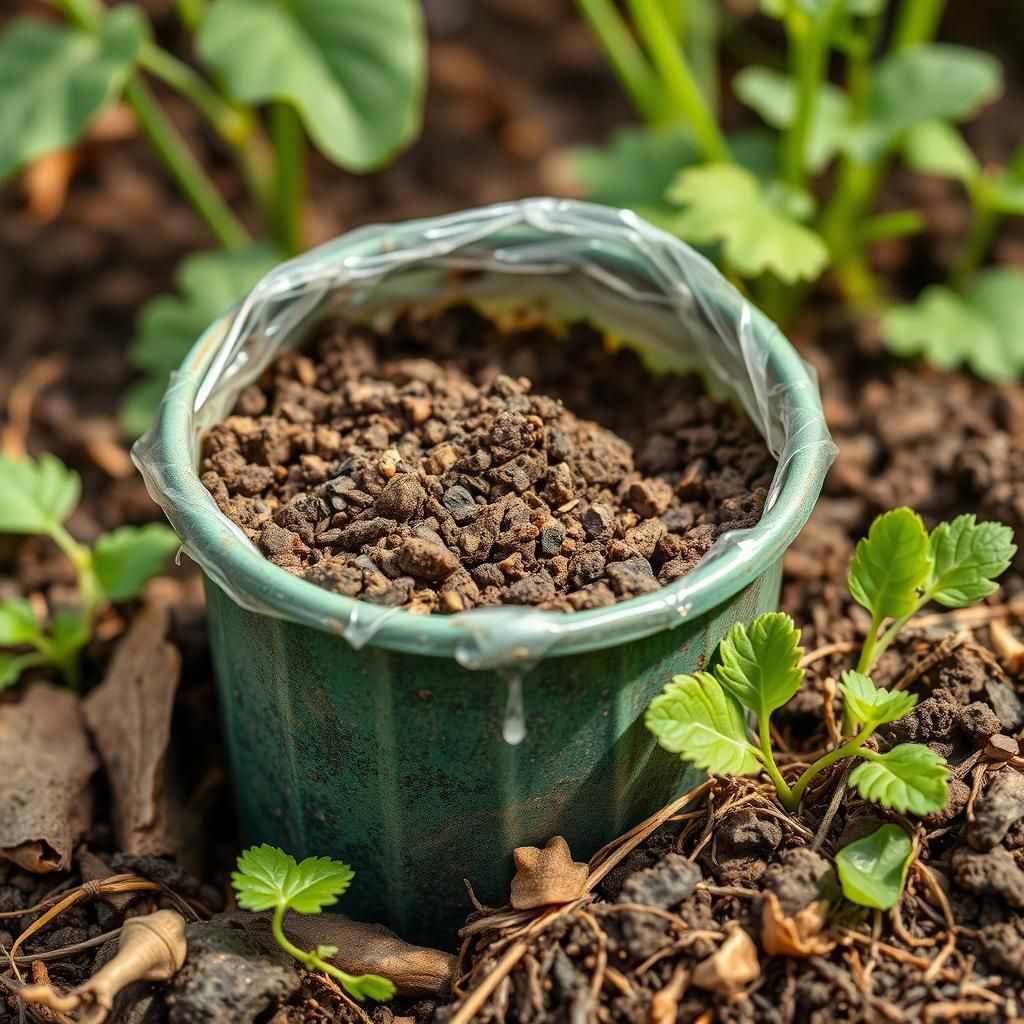Does Urine Speed Up Composting? Exploring the Benefits and Myths

As composting gains popularity as a sustainable waste management practice, many people seek ways to enhance the process. One intriguing question arises: does urine speed up composting? This article delves into the potential benefits of incorporating urine into compost piles, examining both the scientific evidence and common myths surrounding the topic. From its nutritional properties to its role in microbial activity, urine could offer valuable contributions to composting efforts. By exploring the facts and debunking misconceptions, we aim to provide a clearer understanding of whether urine truly serves as a beneficial accelerator in the composting process.
Does Urine Speed Up Composting?
Urine can indeed accelerate the composting process due to its rich nutrient content, particularly nitrogen, which is a crucial element in the composting microbial activity. When added to the compost pile, urine serves as a natural activator, stimulating the decomposition of organic materials more rapidly than compost that does not include it. The high moisture content of urine also helps maintain the ideal conditions for microorganisms to thrive, which is essential for an efficient composting environment. Additionally, using urine in small amounts ensures that the compost maintains a balanced carbon-to-nitrogen ratio, preventing any unwanted odors or excessive compaction.
Benefits of Adding Urine to Compost
Incorporating urine into compost can significantly enhance its nutrient profile, providing a rich source of nitrogen that is often lacking in plant-based materials. This abundance of nitrogen promotes the growth of beneficial microorganisms which are essential for breaking down organic matter. Furthermore, the minerals found in urine, such as potassium and phosphorus, contribute to a more balanced compost product, making it an effective amendment for gardening and enriching soil quality.
How to Properly Use Urine in Composting
To use urine effectively in composting, it should be diluted with water in a ratio of approximately 1:10 before application to the compost pile. This dilution helps to prevent the overconcentration of nutrients that can lead to odor issues or the establishment of harmful bacteria. It is best to add urine directly into the compost material, ensuring it is mixed thoroughly to facilitate even distribution of moisture and nutrients, enhancing the overall composting process.
Considerations for Using Urine in Compost
While urine can be a beneficial addition to compost, it is important to consider the source and health of the person providing it. Ideally, urine should come from healthy individuals, as it may contain traces of medications or dietary components. Additionally, urine should not be collected if the donor has any infectious diseases. It’s also crucial to monitor the temperature of the compost pile, as excessively high temperatures could lead to the breakdown of beneficial nutrients provided by urine.
See also:
Potential Risks of Using Urine in Compost
One potential risk of incorporating urine into compost is the possibility of introducing pathogens, especially if proper hygiene practices are not followed. Additionally, too much urine can lead to an unbalanced compost pile, causing strong odors and attracting unwanted pests. It is also crucial to avoid using urine from individuals who are unwell or have consumed substances that may affect the composition of the urine, as this could result in harmful compounds being present in the final compost product.
Urine vs. Other Nitrogen Sources
Although there are other sources of nitrogen available for composting, such as manure, blood meal, and commercial fertilizers, urine is often more readily available and easier to use. Unlike some animal manures, urine does not carry the same risk of containing pathogens if collected from healthy individuals, and it is less likely to introduce contaminants into the compost pile. Additionally, urine can provide a more concentrated form of nitrogen, thus requiring less volume compared to other nitrogen sources, making it an efficient choice for composting.
| Aspect | Urine | Manure | Blood Meal |
|---|---|---|---|
| Nitrogen Content | High | Moderate | Very High |
| Pathogen Risk | Low (if healthy) | Moderate | Variable |
| Application Ease | Easy | Moderate | Easy |
| Volume Needed | Low | High | Moderate |
Understanding the Role of Nitrogen in Composting with Urine
Urine is an excellent source of nitrogen, one of the key elements required for effective composting. By adding urine to your compost pile, you can increase the overall nitrogen content, which helps to balance the carbon-rich materials typically found in compost, such as leaves and straw. This balance is crucial for accelerating the decomposition process, as microorganisms thrive on this nutrient-rich environment. However, it is important to use urine in moderation to avoid overwhelming the compost with too much nitrogen, which can lead to odors and inhibit decomposition rather than promoting it.
The Nutrient Composition of Urine
Urine is primarily composed of water, but it also contains vital nutrients such as nitrogen, phosphorus, and potassium—the essential elements in plant growth. Nitrogen, in particular, is vital for the microbial activity that drives composting, making urine a valuable addition. Its high urea content breaks down into ammonia, which provides an immediate nitrogen source for microbes, effectively enhancing the composting process. Understanding the balance of nutrients in urine can help composters optimize their recipes for healthy soil production.
Influence of Urine on Composting Temperature
The addition of urine can significantly affect the temperature of a compost pile. A higher nitrogen content promotes microbial growth, leading to increased heat production during decomposition. This heat is beneficial for the breakdown of organic matter, as it can help to kill pathogens and accelerate the composting process. However, it is essential to monitor the temperatures regularly, as excessive heat can result from too much nitrogen, causing beneficial microbes to die off.
See also:
Myths Surrounding Urine in Composting
There are various myths regarding the use of urine in composting, one being that it will result in foul odors or attract pests. When used correctly and in moderation, urine can actually add to the aerobic nature of compost, reducing odor problems. The truth is that if the compost is well-maintained, the addition of urine should not contribute to unpleasant smells. Understanding and addressing these myths can help composters use urine effectively without fear of negative consequences.
Comparing Urine to Other Nitrogen Sources
Many composters may wonder how urine stacks against other common nitrogen sources like animal manure or commercial fertilizers. While both can provide essential nutrients, urine is easier to obtain, is free, and is more concentrated in nitrogen than many animal manures. Additionally, unlike some fertilizers, urine is a natural product that poses fewer risks of chemical contamination, making it an attractive option for sustainable composting practices.
Best Practices for Adding Urine to Compost
To incorporate urine effectively into compost, it's essential to follow some best practices. First, dilute urine with water, ideally in a 1:1 ratio, to prevent nitrogen overload and potential odor issues. Incorporate it into the pile evenly rather than pouring it in a single spot, ensuring that it mixes well with the existing organic matter. Moreover, it is advisable to add urine during active decomposition when microbial activity is high, as this will help minimize any negative impacts while enhancing the nutritional profile of the compost.
Questions from Our Readers
Does urine help in speeding up the composting process?
Urine does play a beneficial role in composting by providing a nutrient-rich source of nitrogen. This is essential for the growth of microorganisms that break down organic matter, which in turn can accelerate the decomposition process in compost piles.
How should urine be added to compost?
It is recommended to dilute urine with water before adding it to the compost pile. This helps to prevent any strong odors and ensures that the nitrogen is evenly distributed, allowing for optimized microbial activity.
See also:
Is there any risk in adding urine to compost?
If added in moderation, the risks are minimal; however, too much urine can lead to excessive nitrogen levels, potentially creating a foul smell and hindering the composting process. It is crucial to maintain a proper balance of carbon-rich and nitrogen-rich materials.
Can using urine in compost make it unsafe for plants?
When properly composted, urine does not pose a risk to plants. In fact, it can enhance the nutrient content of the compost, provided that the compost reaches adequate temperatures for pathogen elimination, ensuring it is safe for use in the garden.

If you want to read more articles like Does Urine Speed Up Composting? Exploring the Benefits and Myths, we recommend you check out our Compost category.
Leave a Reply
Related Articles